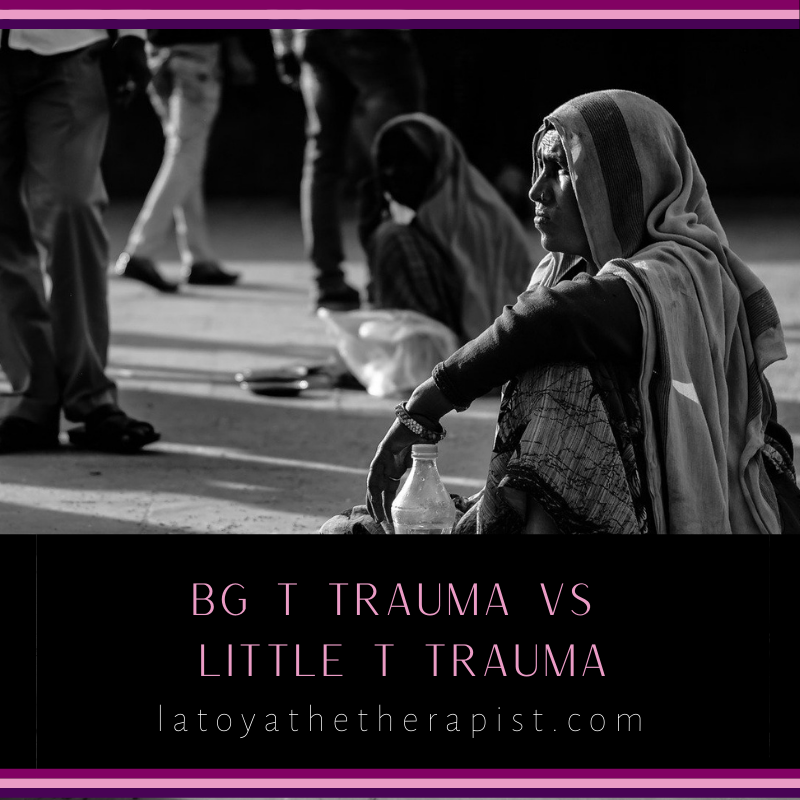Contrary to popular belief, a traumatic event is not limited to distressful situations like rape and war. Even the fifth edition of the Diagnostics and Statistics of Mental Disorders (DSM-5) restricts its definition of a traumatic event to an implied or existential threat to life, grave injury, or sexual violence. The diagnosis is given to a victim, witness, or affected individuals who know the casualty. However, trauma can be subjective. Sometimes what is traumatic to one individual may not be traumatic to another.
A much broader definition of trauma is a response to any incident, circumstance, or a series of occurrences or situations that are physically, mentally, or emotionally unbearable. Traumatic events are overwhelming, aggravating, and impede a person’s intrinsic coping mechanisms. The events are called stressors - they can be physical, psychological, or emotional. They are also intense, leading to overstimulation of the stress response system. Thus, they override the brain’s ability to interpret, control, and respond to the stimulus.
How Trauma Occurs
Your body responds to stress by activating the stress response, also known as the fight or flight response or simply anxiety. The stress response is the body’s natural defense mechanism of confronting threats. The amygdala - the body’s stress processing unit - picks up sensations, both internally and externally, and processes them. When it perceives danger, it conveys the information to the hypothalamus.
The hypothalamus activates the stress response by stimulating the adrenal glands to release adrenaline - the stress hormone. Adrenaline accelerates your heartbeat and blood flow, and breathing rate to boost oxygen intake and transportation to the brain and muscle. The hypothalamus also stimulates the release of the adrenocorticotropic hormone (ACTH) from the anterior pituitary, which prompts cortisol secretion.
Cortisol expedites hepatic glucose production. The glucose molecules are then transported to target organs for energy production. The cascading sequence of events transpires within a blink of an eye - enabling you to avoid oncoming traffic or remove your finger from a scorching surface.
However, in the case of trauma, the nervous system becomes jumbled up by stimuli. Furthermore, the confusion interferes with the brain regions responsible for the stress response. The miscommunication also causes an imbalance in the biomolecules, maintaining the stress response. Notably, cortisol levels significantly reduce as adrenaline levels skyrocket.
Types of Trauma
Since a traumatic event is, at times, subject to an individual, a list of these horrendous incidents may not be exhaustive. Perhaps a better way of characterizing trauma is by classifying traumatic responses. From this rationale, trauma has two categories - big “T” Trauma
Big T Trauma
Big T trauma results from events that are universally considered traumatic. The incidents are usually overt and extreme. They can be human-made or natural. Examples include a plane crash, war, tsunami, terrorist attack, or a grisly road accident. Big T traumas also encompass experiences such as abuse, sexual assault, physical violence, and the loss of a loved one.
Exposure can be in the form of witnessing the ordeal - like watching a loved one fight through debilitating sickness. One can also be exposed to trauma as a victim. Another form of exposure is through association. For instance, learning about the murder of a loved one.
Little t Trauma
On the other hand, little t traumas are personal - people react differently to the same situation. For instance, the death of a pet can be traumatizing to one person and not a big deal to another. Similarly, people handle the difficulties of a severed relationship differently. Some people bounce back from broken relationships almost immediately, while others may be scarred for life - to the point of shying away from future commitments.
The reason why human beings are affected differently from similar circumstances depends on both nature and nurture. A person’s genetic makeup influences their resilience in heart-wrenching situations. Epigenetics, although controversial, is another plausible reason behind an individual’s ability to cultivate endurance or succumb to a traumatic event. There is a growing number of evidence showing epigenetic memories can be inherited.
As for nurture, your upbringing influences habits that enable you to cope after exposure to a traumatic event. For instance, people from close-knit communities have support and accountability at their disposal, strengthening their will to heal. Nurture may also stifle healing, especially in cultures where mental illness is deemed taboo.
Overcoming Trauma
Trauma left untreated is detrimental to your psychological and physical health. It can morph into post-traumatic stress disorder (PTSD), severe anxiety and depressive disorders, substance use abuse, and eating disorders. We can talk about how to cope in another blog. However, I think it is important to end with this…Seek the services of a professional if you are struggling they will be able to help you heal so you are no longer defined by your trauma.
